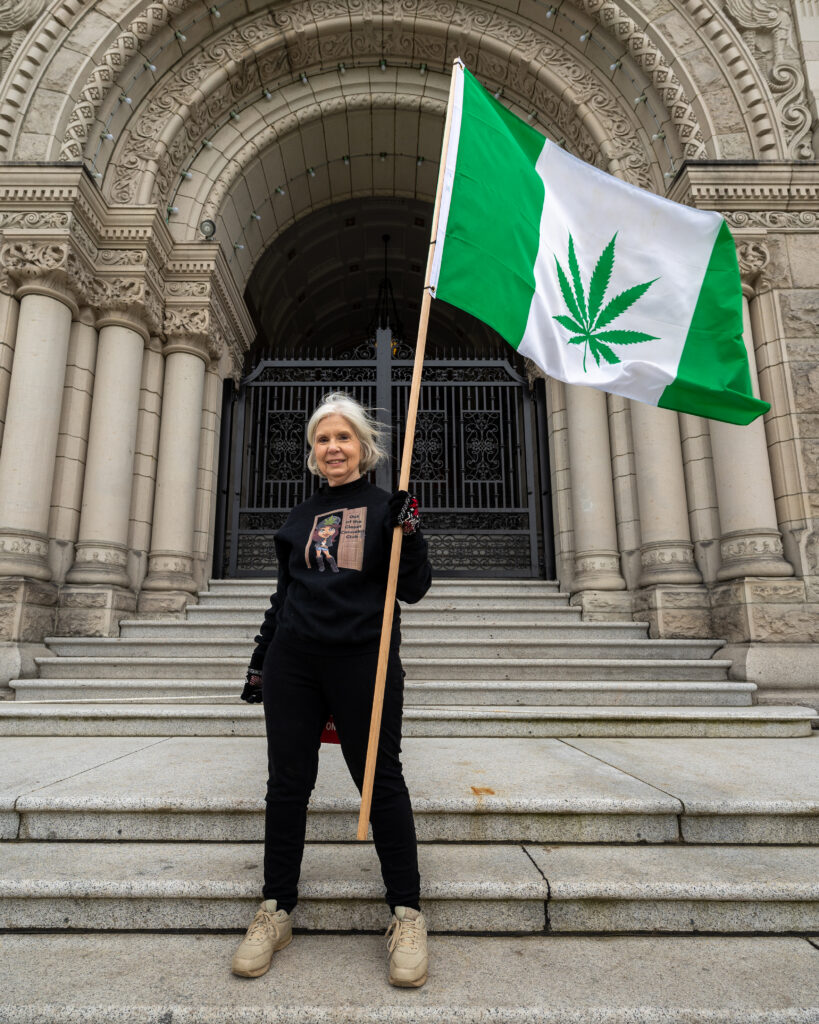Long before there was a medical cannabis program, patients across Canada relied on local groups of compassionate advocates who provided high-quality, low-cost products. Instead of including these medicinal providers in the regulations for medical use, or years later when cannabis was made legal, Health Canada has dismissed these groups as non-compliant. Now that the federal government has announced a review of the effects of legalization and the parallel Access to Cannabis for Medical Purposes Regulations, there is an opportunity for the public to encourage Health Canada to include compassion clubs in their regulations.
Click here to access the Cannabis Act Review survey from now until November 21st, 2022.
While many patients have the financial means to grow their own medicine, the vast majority of patients rely on others to produce cannabis products. The federal medical program has allowed caregivers to grow for a patient, though only a fraction of people that use cannabis as a medicine use the legal scheme. Historically, a majority of Canadians using cannabis for medical purposes have relied on the black market, often purchasing from local medical stores that became prolific across the country towards the end of prohibition.

Since 1996, the Victoria Cannabis Buyers Club has been leading the way when it comes to patient access to high-dosage edible cannabis products, along with a variety of other medicines. Along the way we fought to the Supreme Court of Canada with one of our bakers, Owen Smith, in 2015, winning a unanimous decision that made edibles and concentrates legal for patients. That decision was a near fatal blow to cannabis prohibition, convincing many of the vast potential for the full range of cannabis products.
Unfortunately since the beginning of the medical cannabis programs, there has been no attempt by Health Canada to establish storefront locations for patients to obtain information about and access to the wide range of products available for a wide range of medical conditions. Over the decades, compassion clubs across the country have been raided and denounced by public officials, though eventually cities like Vancouver and Victoria began to license medical cannabis businesses because it was evident the ACMPR was inadequate to meet patient needs, particularly edible products. However, when legalization was brought into effect in 2018, many of these compassion clubs closed or were forced to close by provincial authorities acting under the new legislation.
There are many reasons why medical storefronts provide a much better resource for patients than recreational stores. Compassion clubs focus on products designed for medical uses, educate staff about the various applications of their medicines and provide patients with a friendly space to ask questions without feeling rushed or pushed towards a sale for profit. Clubs can also open a consumption space, offering patients a relaxing opportunity to use their medicine, meet other people suffering from similar medical problems and learn more about the products available in the facility.

Staff working in medical dispensaries are often patients themselves, giving them personal experience with using the products for various medical ailments. Since these staff have medical needs they often are the first to try new products, try new vaporizing devices and learn about how others are benefiting from something different. This connection between patients and other patient/caregivers builds a strong bond of trust and companionship that generates a feeling of togetherness that does not normally happen in retail or health care facilities.
Patients deserve the best medical cannabis program possible, not one that borders on meeting constitutional standards. Licensing compassion clubs like the VCBC would drastically improve the medical cannabis program, providing better healthcare without negatively affecting public safety. Over all of these years of excluding compassion clubs from its programs, Health Canada has never provided a reason for this obvious gap.
Everyone concerned about the medical cannabis program continuing to operate should also be pushing for compassion clubs to become legal. We need to take this opportunity to improve the medical cannabis program, something the Harper government predicted would be a $20 billion industry by 2020. It is absurd to even consider taking away the medical program when everyone knows that if not for patients fighting for the right to use this plant that legalization would never have occurred.
Over the next few weeks, the Cannabis Digest will be posting articles outlining many of the problems with legalization and why taking the medical cannabis program away would be a terrible step backwards for patients and the country as a whole. The survey continues until Nov 21 and one week before it is over we will publish our complete answers, allowing others to cut and paste our answers into their own response. Please help us share this important information and get others to help us stand up to this threat.




